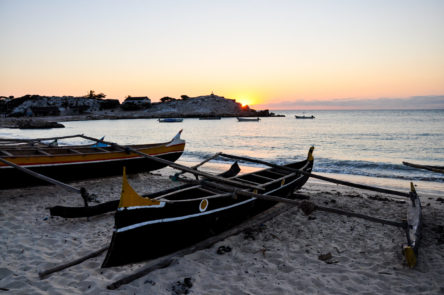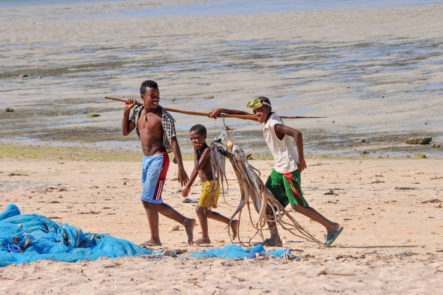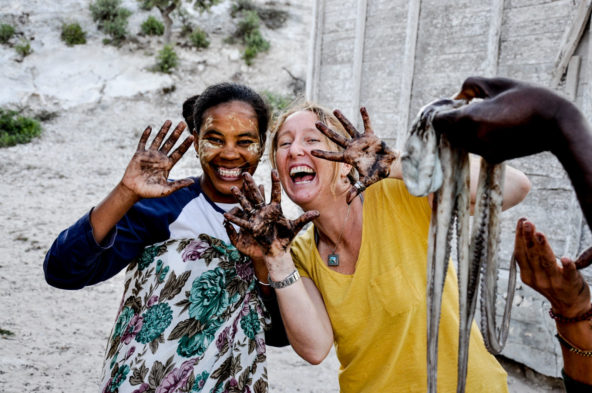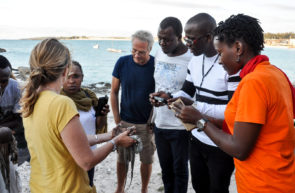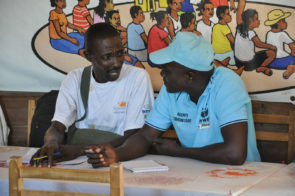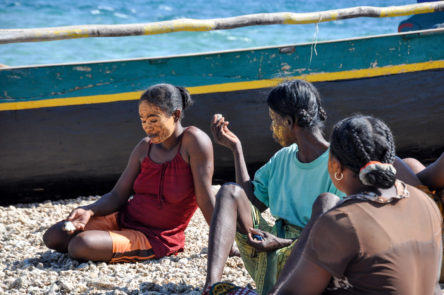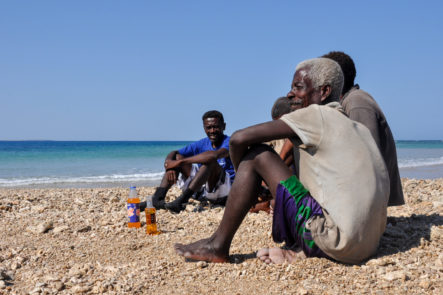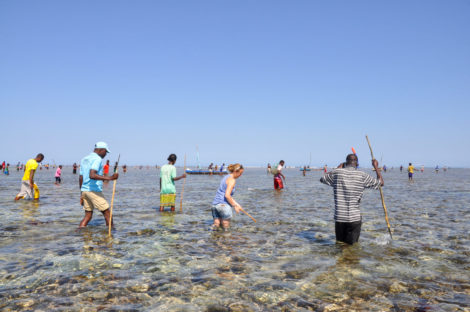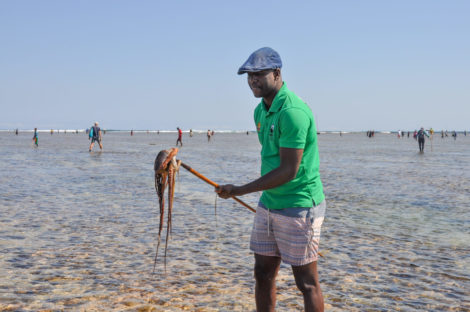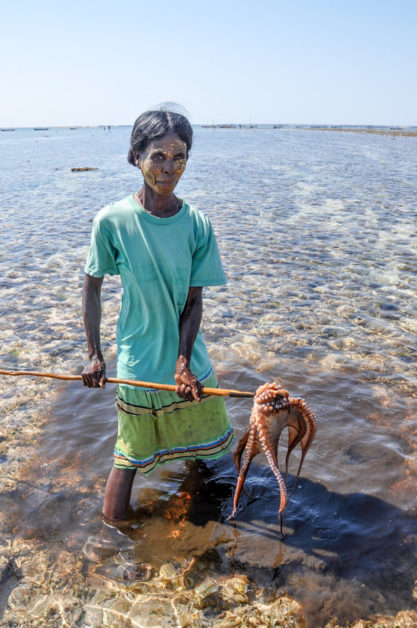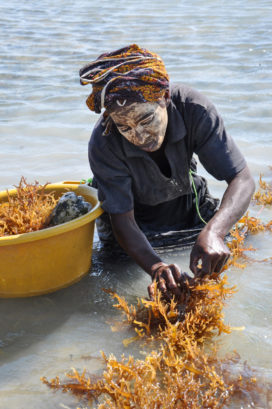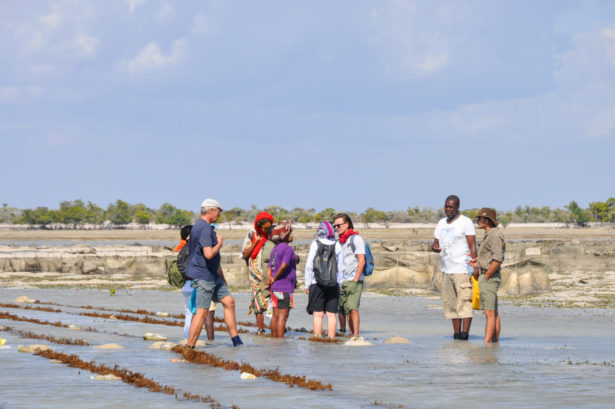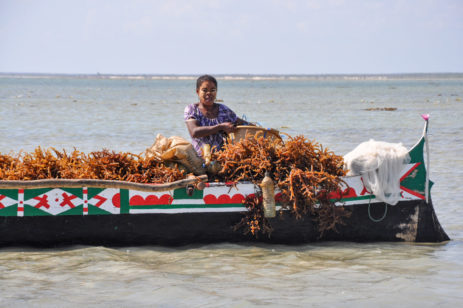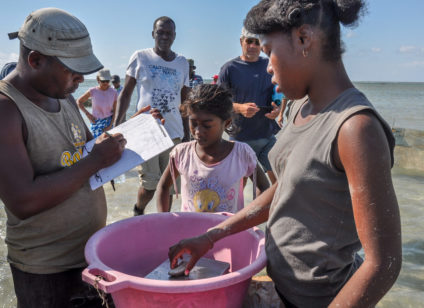What was this exchange, and why was it important?
Earlier this year, Blue Ventures invited five new partner organisations from Zanzibar, Mozambique, Mayotte, Kenya and India to Madagascar. Over the course of 10 days, the exchange party visited key field sites in Madagascar to learn more about Blue Ventures’ work and to share experiences and best practice in small-scale fisheries management.
In recent years, community-led marine conservation efforts have rapidly increased in the Western Indian Ocean, with many initiatives catalysed by the use of short-term octopus fishery closures. This approach sees communities close a small reef area to octopus fishing for just a few months. Since octopus grow fast but die young, and because the bigger they are the more eggs they produce, closures can drastically increase catches and incomes for local fishers. In Madagascar, these closures have sparked community interest in broader conservation initiatives, inspiring a grassroots marine management movement that has seen 65 locally managed marine areas (LMMAs) established to date!
Many of these LMMAs – and the octopus closures that preceded them – have themselves been kick-started by learning exchanges, in which representatives from different communities and organisations are brought together to share knowledge and expertise in community-based fisheries management.
What makes this exchange different?
Over the past decade, Blue Ventures has helped to organise dozens of exchanges within Madagascar and the broader Western Indian Ocean. More recently, we’ve gone further still, supporting coastal fishers from Mexico to travel 17,000 km to Madagascar to share their experiences.
The previous exchanges we’ve worked on have tended to be with representatives of a single community, in a single country. This year’s exchange was much larger in scope, bringing together almost two dozen fishers, community organisations and conservation professionals from around the world, enabling a multi-way exchange of expertise.
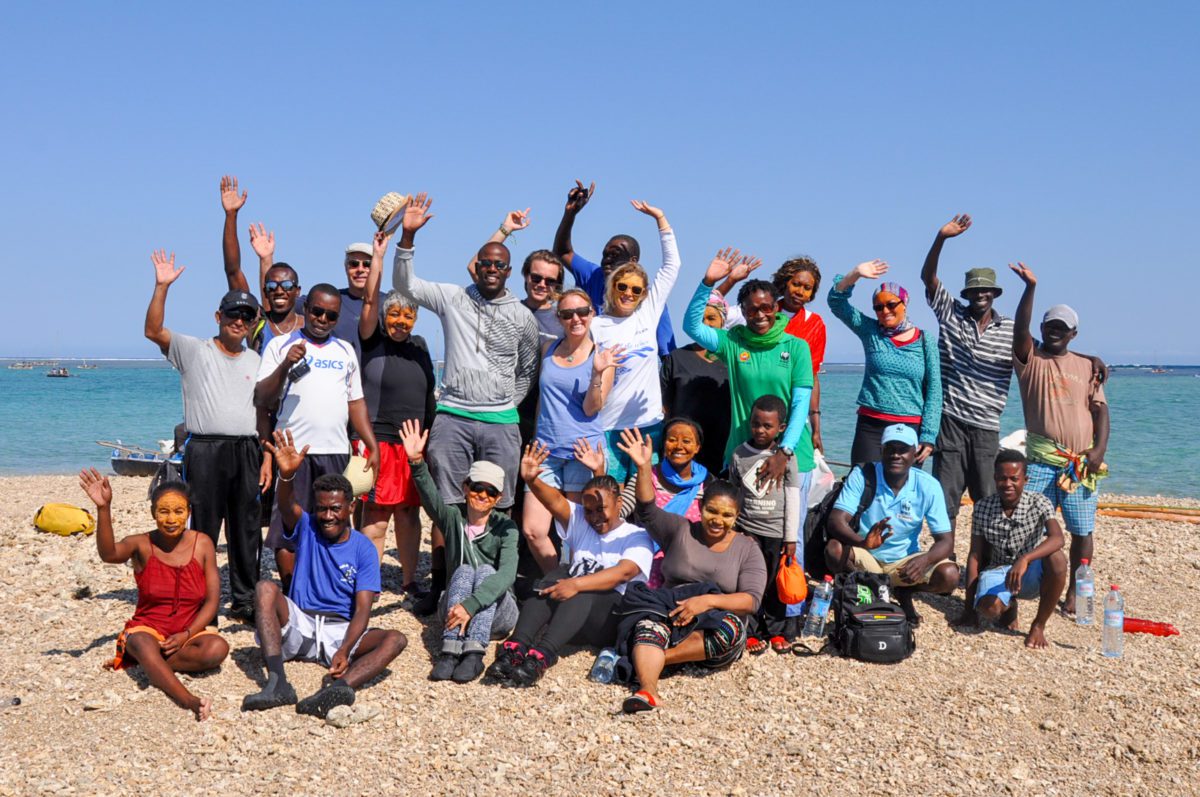
The exchange party | Photo: Anouk Neuhaus
The partners who attended have since returned home and, inspired by the exchange, begun the tricky task of implementation, establishing not only periodic octopus fisheries closures, but also attempting to spark LMMA movements in their own countries.
A logistical challenge
With a guest list consisting of more than 20 people from several different countries speaking multiple first languages, the exchange was enormously challenging to organise. Things would not have run so smoothly had the group not been willing to pitch in and help each other out at every step.
From the very first day at BV’s base in the coastal village of Andavadoaka, this cooperative spirit was plain to see. In the morning, BV staff presented fisheries monitoring techniques and our Population Health Environment programme to the party. With staff and participants alike helping to translate for those who spoke no English, it was clear that the exchange party were looking to gain as much as possible from their time together.
Later on the first day, the group learnt about how smartphones and freely available software can help communities monitor their marine resources, and received practical advice on sexing and ageing an octopus from BV UK’s octopus guru, Charlie Gough.
Reopening the octopus closures
The exchange intentionally coincided with the reopening of several octopus closures, and on the group’s second day in Andavadoaka we traveled to the nearby island of Nosy Ve to meet local octopus fishers (known as gleaners), and then on to Nosy Massay reef flat to see one of the closures reopen.
On the edge of the reef, fishers waited patiently for the tide to drop to the point where the water was shallow enough to begin gleaning.
When the moment finally came and the fishing began the group were able to see firsthand the increased catches that can result from a closure.
Under the tutelage of our experienced guides, we even got to try our hands at spearing some octopus ourselves. Some of us were more successful than others: one of the group from Mayotte caught several octopus, and then worked with the Women’s Association to prepare them, Mayotte style, for the evening meal.
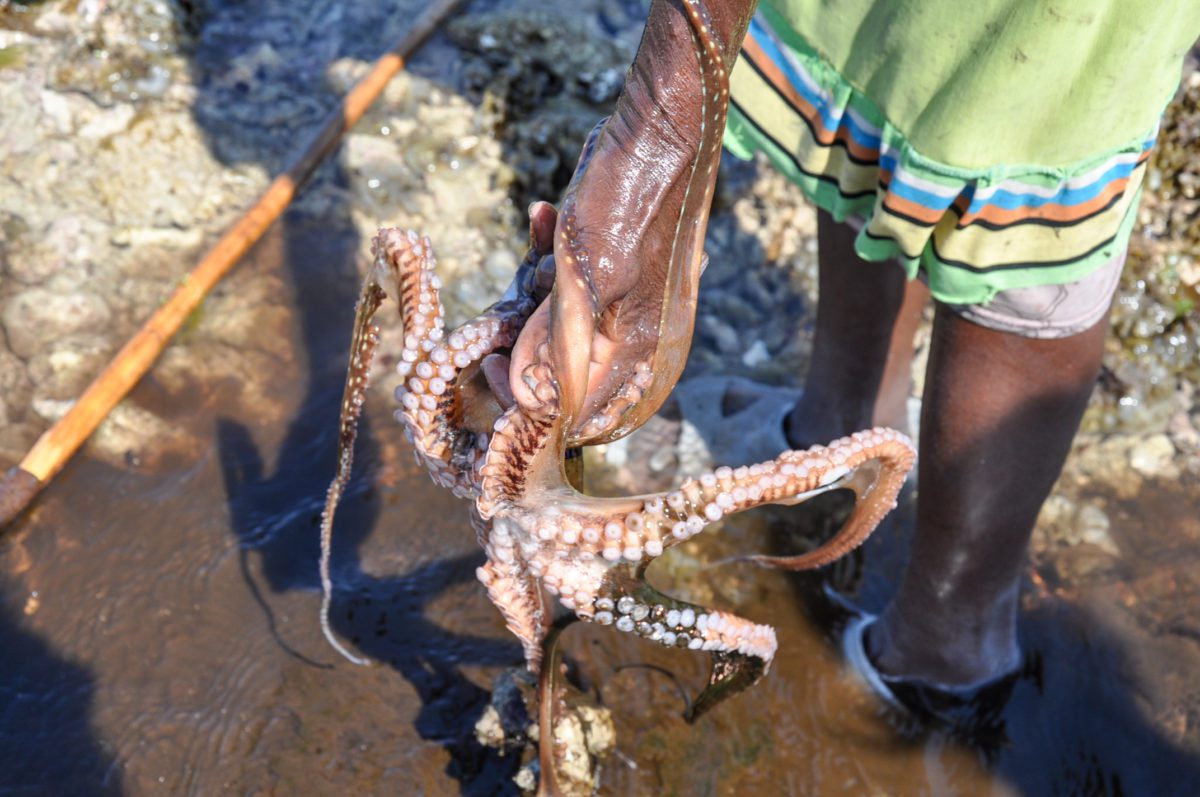
Photo: Anouk Neuhaus
Alternative livelihoods
The next learning experience for the party was a visit to the sea cucumber and seaweed farms in the nearby village of Tampolove. In a world where demand for seafood continues to rise though many wild fish stocks are fully fished or overfished, aquaculture can help to diversify coastal livelihoods, reducing resource pressure, increasing the availability of seafood and improving community resilience.
The farms in Tampolove benefit from a network of business and research partners, including the University of Toliara’s Marine Science Institute, local seafood exporter Copefrito and aquaculture company Indian Ocean Trepang. Together, these organisations have helped to provide access to markets for sea cucumber and seaweed, enabling families to develop their own aquaculture businesses.
Looking forward
During our remaining time in the field, we snorkelled at one of the permanent marine reserves in which all fishing is banned, and completed a full-day training workshop, before giving final presentations, and saying fond farewells. The participants returned to their respective communities armed with new knowledge and experiences to help scale and sustain fisheries closures in new places.
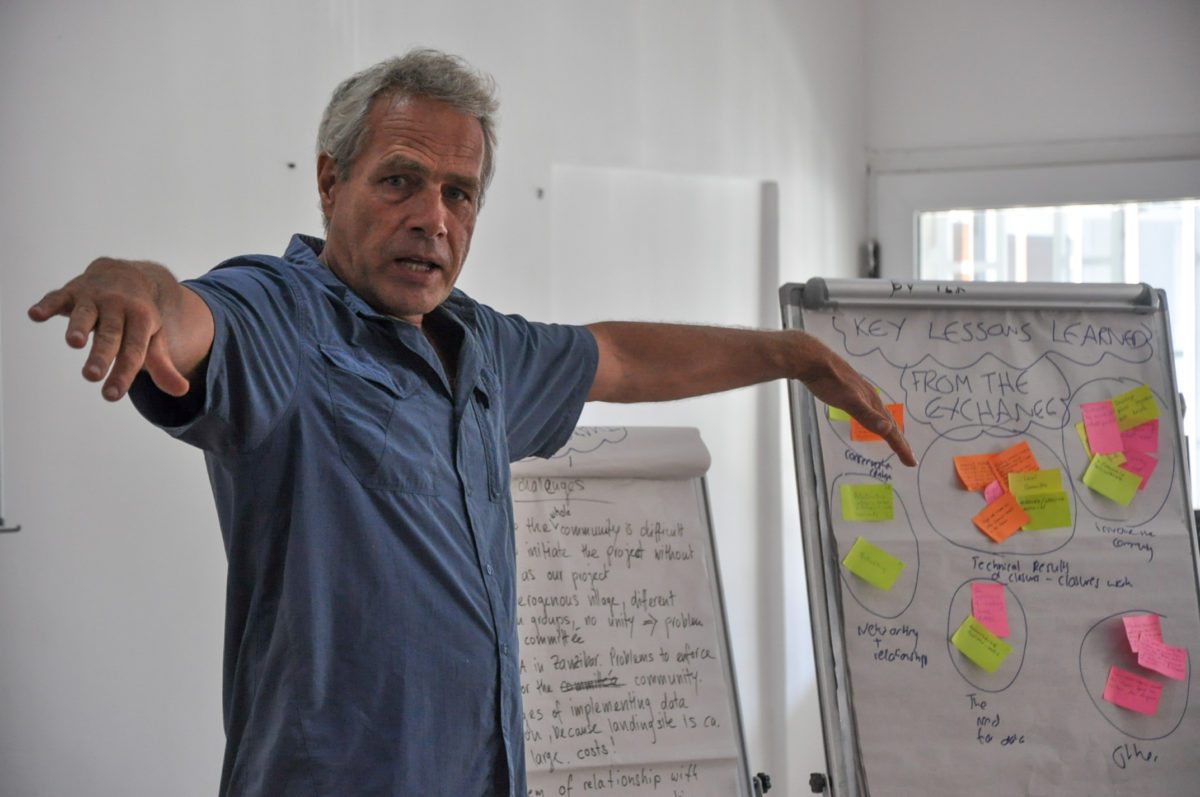
Key lessons learned from the exchange | Photo: Anouk Neuhaus
By themselves, the closures and the LMMAs that may arise as a result of the exchange will not be enough to overcome the complex environmental and social challenges that lie ahead. However, they are undoubtedly a step towards a more hopeful future for fragile coastal ecosystems, and those who depend upon them for survival.
Special thanks to the new partners for coming to see us in Madagascar: marinecultures.org, Kuruwitu Conservation and Welfare Association, Centre for Action Research on Environment, Science and Society, Mayotte Marine Park and WWF Mozambique. Thanks also to Anouk for all her wonderful photos of the exchange.
Find out more about our work supporting partners.


